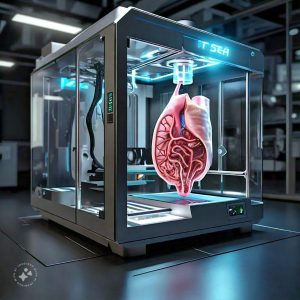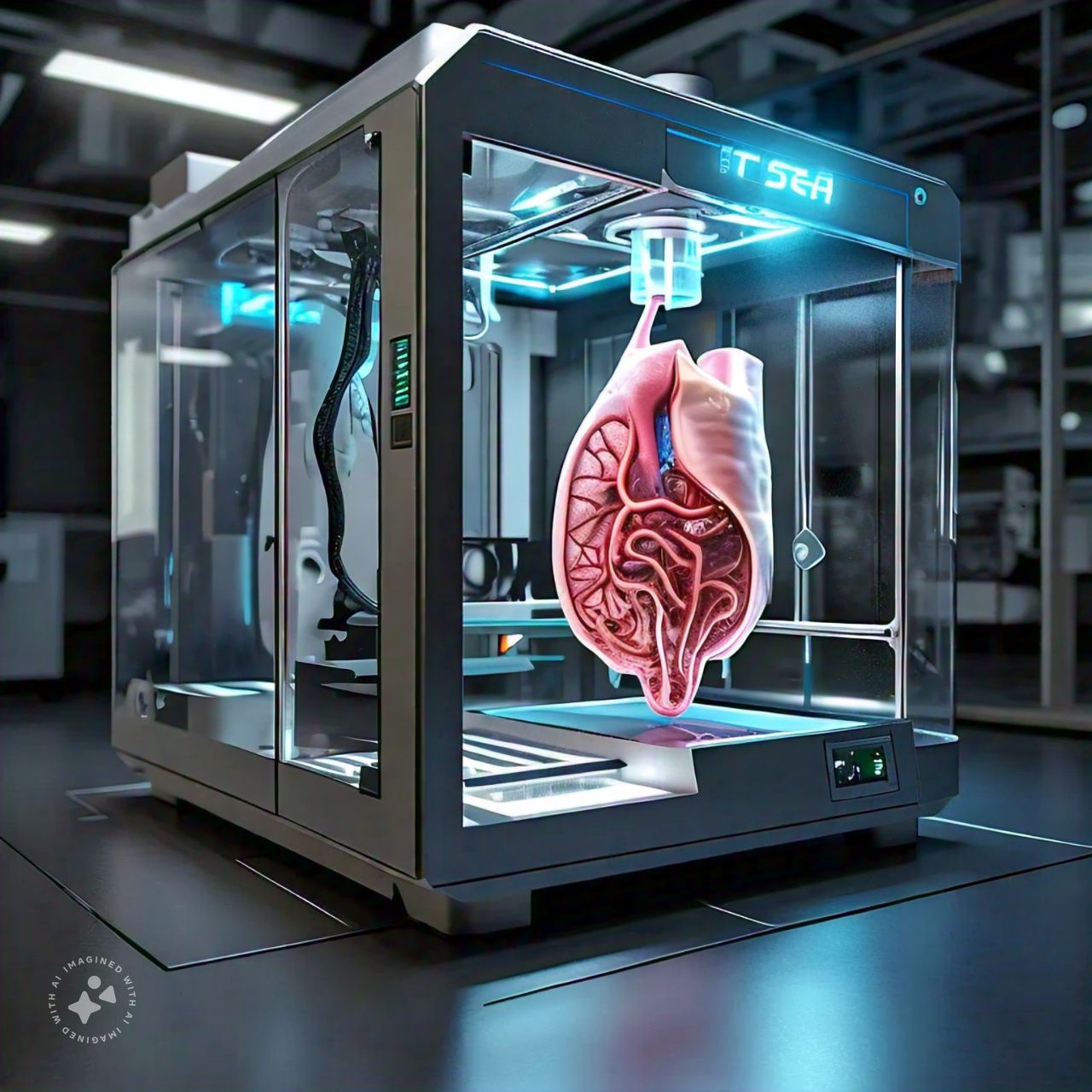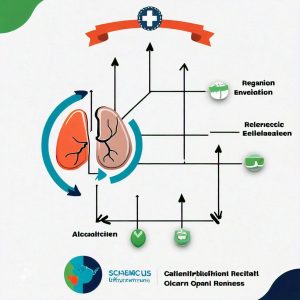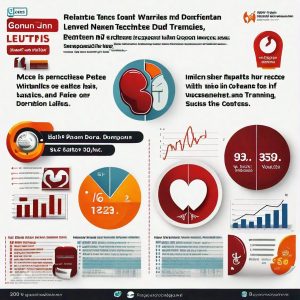Introduction
Organ transplantation is a remarkable medical advancement that has transformed the lives of countless individuals suffering from end-stage organ failure. The ability to replace a failing organ with a healthy one from a donor can restore health and prolong life. Despite its potential, organ transplantation faces significant challenges, including organ shortages, ethical dilemmas, and varying public perceptions. This article delves into the intricacies of organ transplantation and donation, highlighting the process, the types of donations, the ethical issues involved, and the impact on society.
1. Understanding Organ Transplantation
Organ transplantation involves the surgical procedure of transferring an organ from one body to another, or from a donor site to another location on the patient’s body. The most commonly transplanted organs include the kidneys, liver, heart, lungs, pancreas, and intestines. Each of these organs plays a crucial role in maintaining bodily functions, and their failure can lead to severe health complications or death.
Types of Transplants
- Living Donor Transplants: In this case, a living person donates an organ, often a kidney or part of the liver. Living donation has several advantages, including a shorter waiting time and improved outcomes due to the organ’s better condition.
- Deceased Donor Transplants: Organs are harvested from individuals who have been declared brain dead or who have suffered cardiac death. This method accounts for the majority of organ donations.
- Directed Donations: This occurs when a donor specifies who will receive the organ, often seen in cases involving family members or close friends.
- Non-Directed Donations: Also known as altruistic donations, these involve individuals who choose to donate organs without a specific recipient in mind.
Image Prompt for Section 1
- A medical team in a hospital operating room preparing for an organ transplant surgery, showing high-tech medical equipment and the seriousness of the procedure.
2. The Organ Donation Process
The organ donation process is intricate and involves several critical steps. Understanding this process is essential for potential donors and recipients alike.
2.1 Registration
Individuals interested in becoming organ donors can register their intent to donate through various means, including online registries, state driver’s license programs, or healthcare providers. Awareness campaigns play a crucial role in educating the public about the importance of registering as an organ donor.
2.2 Medical Evaluation
Once a potential donor is identified, a thorough medical evaluation is conducted to determine the suitability of the organs for transplantation. This assessment includes reviewing medical history, conducting physical examinations, and performing diagnostic tests.
2.3 Organ Retrieval
If a donor is confirmed as suitable, organ retrieval is performed by a specialized surgical team. The procedure must occur promptly to ensure the organs remain viable for transplantation. Typically, the organs are preserved using cold storage solutions and transported to the transplant center.
2.4 Allocation of Organs
Organs are allocated based on a variety of factors, including medical urgency, compatibility, and geographical proximity. The United Network for Organ Sharing (UNOS) manages the national organ transplant waiting list in the United States, ensuring a fair and efficient allocation process.
3. The Importance of Organ Donation
Organ donation is vital for several reasons:
- Saving Lives: Every day, thousands of individuals await organ transplants, with many dying while on the waiting list. Organ donation can save lives and improve the quality of life for recipients.
- Healthcare Cost Savings: Transplants can significantly reduce long-term healthcare costs associated with managing chronic organ failure.
- Advancements in Medical Science: Organ transplantation has spurred research and technological advancements, leading to improved surgical techniques and post-operative care.
4. Ethical Considerations
Despite its life-saving potential, organ transplantation raises ethical questions that must be addressed:
4.1 Informed Consent
Obtaining informed consent is crucial in organ donation. Potential donors and their families must fully understand the implications of organ donation, including the medical and ethical considerations involved.
4.2 Allocation Equity
The allocation of organs must be equitable, taking into account factors such as medical urgency and compatibility without discrimination based on age, race, or socioeconomic status.
4.3 Living Donor Risks
While living donation can save lives, it is essential to consider the potential risks to the donor’s health. Comprehensive evaluations and counseling are necessary to ensure that living donors are fully informed of the risks involved.
5. Addressing Organ Shortages
Organ shortages remain a significant challenge in transplantation. Strategies to address this issue include:
5.1 Public Awareness Campaigns
Increasing public awareness about the need for organ donors can encourage more individuals to register as donors. Educational initiatives can help dispel myths and misconceptions about organ donation.
5.2 Incentives for Donation
Some countries have explored offering incentives for organ donation, such as financial compensation for living donors or support for their medical expenses.
5.3 Technological Innovations
Advancements in medical technology, such as 3D printing of organs and the use of artificial organs, hold promise for addressing organ shortages in the future.
6. The Role of Technology in Organ Transplantation
Technology plays a crucial role in enhancing the organ transplantation process. Innovations in medical imaging, surgical techniques, and post-operative care have improved transplant outcomes and reduced complications.
6.1 Organ Preservation Techniques
Advanced preservation techniques, such as machine perfusion, allow for better preservation of organs during transportation, extending their viability for transplantation.
6.2 Telemedicine
Telemedicine has improved access to transplant evaluations and follow-up care, allowing healthcare providers to monitor patients remotely and provide timely interventions.
6.3 Artificial Intelligence
AI is increasingly used in organ matching algorithms, helping to improve the efficiency of the allocation process by analyzing vast amounts of data to identify suitable matches for recipients.
7. Personal Stories of Hope
Many individuals have shared their inspiring stories about organ donation and transplantation. These personal narratives highlight the profound impact organ donation can have on lives.
- Recipient Stories: Recipients often describe the transformative experience of receiving a transplant, emphasizing the gratitude they feel toward their donors. These stories serve as powerful testimonials to the life-changing effects of organ donation.
- Donor Families: Families of deceased donors often find solace in knowing that their loved ones’ organs have saved lives. Many become advocates for organ donation, sharing their experiences to encourage others to consider donation.
8. The Future of Organ Donation and Transplantation
The future of organ transplantation is promising, with ongoing research and innovation paving the way for improved outcomes and increased availability of organs.
8.1 Xenotransplantation
Xenotransplantation, the process of transplanting organs from animals to humans, is being explored as a potential solution to organ shortages. While still in experimental stages, advancements in genetic engineering may make this a viable option in the future.
8.2 Bioprinting Organs
3D bioprinting technology is being developed to create human organs using a patient’s cells. This groundbreaking approach could eliminate the need for donors altogether, revolutionizing the field of organ transplantation.
8.3 Continued Advocacy
Ongoing advocacy efforts aimed at increasing public awareness about the importance of organ donation will be crucial in addressing the organ shortage crisis and ensuring that more lives can be saved through transplantation.

Conclusion
Organ transplantation and donation are critical components of modern medicine, offering hope and renewed life to those suffering from organ failure. While significant challenges remain, continued advocacy, technological advancements, and ethical considerations will play a pivotal role in shaping the future of organ donation. By raising awareness and promoting the importance of becoming an organ donor, we can work together to save lives and make a lasting impact on society.



